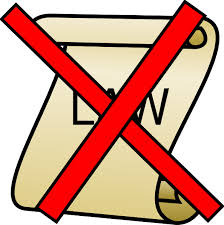THE ANTI-HOMOSEXUALITY BILL/ ACT
.
HOW IT CAME INTO PLACE, HOW IT WAS CHALLENGED AND EVENTUALLY IT BEING KICKED OUT AS LAW
The Uganda Anti-Homosexuality Act, 2014 was passed by the Parliament of Uganda on 20th December 2013 and signed into law by President Yoweri Kaguta Museveni on 24th February 2014. However, the Constitutional Court of Uganda ruled that the Act was invalid because it was not properly passed into law i.e based on procedural grounds.
.
How did this whole idea of the Anti-Homosexuality law come about?
As it with tradition in many African countries, same sex relationships have been unlawful and illegal in many countries. The first written law against homosexuality was brought to Uganda during the colonial days under Section 145 of the Penal Code Act, which provides for unnatural offences which are punishable with up to life in prison.
However, many argued that this law was not enough, hence the Anti-Homosexuality law was brought into Parliament as a Bill by Member of Parliament, David Bahati on the 14th of October 2009.
One argument for having the law brought into Parliament on the argument that homosexuality was a threat to the cohesion of African families that over the years had traditionally been between a man and woman.
.
Opposition to the law
After the Bill was introduced, there was a lot of opposition to it mainly from Europe and America up to an extent of threats to cut off financial aid to Uganda if the law was ever passed by Parliament.
As a result, some provisions considered harsh like the death penalty was removed, and replaced with life imprisonment for gay people. The bill was then discussed for much of 2010 and 2011 but never voted on by Parliament.
.
Passing of the Bill Parliament
Following heated discussions, the bill was again reintroduced in Parliament in February 2012 and passed by Parliament on 20 December 2013. The final version of the Bill which was passed into law had offences like “homosexuality” and “aggravated homosexuality” which were punishable by life imprisonment. Following the passing of the Bill by Parliament, the President publically signed it into law on 24th February 2014.
.
Some provisions to note in this law
The law defined homosexuality to include various same-sex sexual acts of which the person charged would be imprisoned for up to seven years. while “Aggravated homosexuality” was defined to include a same-sex sexual act with a person under 18 years old: carried out by a person who is HIV positive; parent or guardian of the person with whom the act was committed; by a person in authority over the person with whom the act was committed; the victim of which was a person with a disability; by a serial offender; or by a person who administered any drug, matter, or thing with the intent to stupefy or overpower another person to enable a same-sex act to be committed.
Law Challenged in the Constitutional Court
Following the bill being passed into law, it was challenged in the Constitutional Court by a number of human rights defenders who said the law was unconstitutional.
On 1st August 2014, the Constitutional Court decided that the Anti-Homosexuality Act was invalid since it was passed without the minimum number of MPs required to pass a law i.e for lack of quorum in parliament. Since government did not appeal this decision, the Courts judgment still stands.


